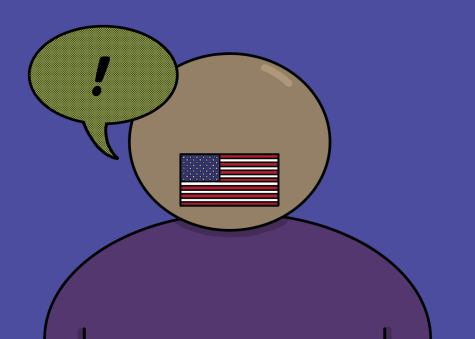Editorial: Julian Assange’s espionage case could set a precedent for journalism. That is a mistake.
April 13, 2023

Julian Assange, founder of WikiLeaks, faces the possibility of 175 years in prison.
His crime? Publishing classified information related to the wars in Afghanistan and Iraq, war crimes and mass corruption.
If the U.S. succeeds in extraditing Assange to the U.S. on espionage charges, no reporter is safe, a message his father, John Shipton, delivered during a screening of the “Ithaka” film last week at Columbia College. The film follows Shipton as he works to keep Assange from being extradited from London, where he has been imprisoned for four years this week awaiting extradition.
The Obama administration declined to charge Assange; the Trump administration, however, pushed forward with the indictment on espionage charges. Now, under the Biden administration, prosecutor Gordon Kromberg has continued to pursue the case aggressively, even as Democratic members of Congress this week called on the charges to be dropped.
In the indictment, the Department of Justice accused Assange of being part of a hacker cell with Chelsea Manning, the former US Army intelligence analyst who provided hundreds of thousands of confidential military and diplomatic records about the wars in Iraq and Afghanistan to WikiLeaks. The basis of this accusation comes from a message Assange sent Manning, “curious eyes never run dry.”
This accusation falls flat and it is, in all honesty, an insult to journalism. To be a journalist, one must always remain curious and hungry for the truth in order to be able to feed the people with relevant and vital information.
Another essential rule of journalism is the protection of sources. The DOJ has accused Assange of working with Manning to crack an encrypted password hash, something that, if successful, would have placed Manning under a username that did not belong to her, making it “more difficult for investigators to identify Manning as the source of unauthorized disclosures of classified information.”
Source protection is essential to investigative journalism. If that is an indictable offense, then any investigative journalism is a crime.
Assange’s indictment is very much tearing down what the United States prides themselves on: freedom, truth, justice, “The American Way.” His indictment brings forth damages to journalism and it puts into question what that means for freedom of speech in the country moving forward.
But here’s the most important thing to know: The U.S. has a history of hiding its atrocities through any means necessary.
A prominent example is the United States’ purposeful refusal to join the International Criminal Court, a standing venue to investigate war crimes, genocide and crimes against humanity, as it is concerned that the tribunal could someday try to prosecute Americans.
It is only through journalists such as Gary Webb, who exposed the origin of the crack epidemic and Barton Gellman, who helped Edward Snowden leak information about surveillance programs previously unknown to the American public, that we know about some of these atrocities.
Freedom of the press is essential in the preservation of democracy. Julian Assange’s indictment could set a precedent that would result in the censorship of news organizations for fear of being persecuted.
Whether or not respective governments agree with our jobs, the world needs journalists. We will always be the bridge between the people and the truth.
The U.S. should drop the charges.







